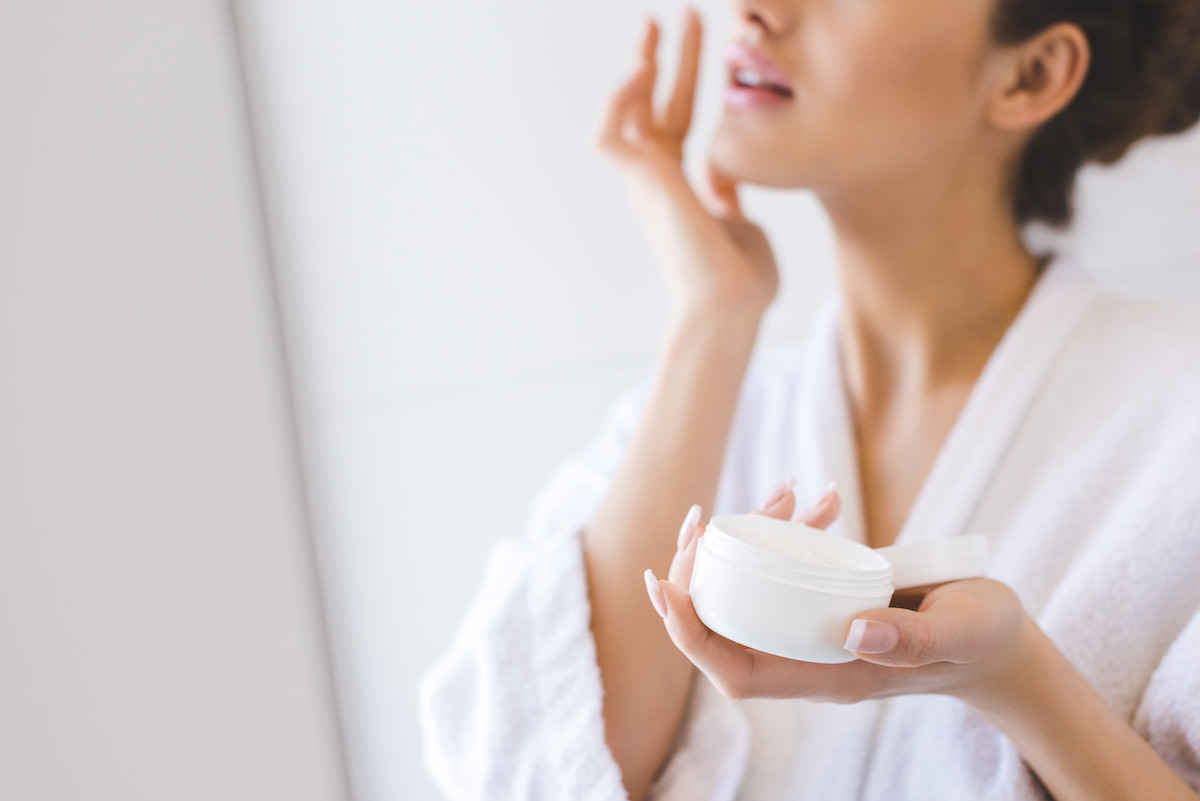Moisturizers for Different Skin Types: 3 Types of Moisturizer
Written by MasterClass
Last updated: Sep 8, 2021 • 3 min read
Moisturizer is a hydrating cream you can apply day and night as part of your skincare routine.
Learn From the Best
What Is Moisturizer?
A moisturizer is a hydrating face cream usually applied on the face and neck after washing as the last step in the skincare routine.
Lotion vs. Moisturizer: What’s the Difference?
Moisturizers and lotions are hydrating products for skin, but they are not interchangeable. Key differences between the two include:
- Application: Moisturizers are typically face creams. Lotions, while technically a type of moisturizer, hydrate the body.
- Thickness: A face cream tends to be thicker than body lotion. Body lotions have a higher water content, so they can be more easily spread across a wider surface area and are easily absorbed by the skin.
- Ingredients: Lotions often have formulations that contain oil to properly hydrate the thicker skin of the body. The thicker formulations of body lotion can clog pores on the face, leading to more breakouts. They also tend to be scented, which may be an irritant for sensitive skin. Moisturizers feature specialized ingredients tailored to the skin needs of the face, such as anti-aging, acne, or sensitivity.
4 Benefits of Moisturizer
Moisturizer is an important part of a skincare routine and helps promote healthy skin. Benefits of adding moisturizer to your regimen include:
- 1. Hydration: As the skin is exposed to the sun, dirt, and pollution in the air, it dries out. A moisturizer replenishes the moisture in the skin, increasing hydration and making the skin softer. Moisturizer may also eliminate dry spots, flakiness, and redness.
- 2. Protection: Moisturizers with SPF (such as SPF 30 sunscreen) protect against the sun. Moisturizer also prevents transepidermal water loss (TEWL), helping the skin retain its natural moisture.
- 3. Brightening: Moisturizers with vitamin C have brightening properties, which can help even out skin tone and fade dark spots.
- 4. Anti-aging: Moisturizers with retinol or retinoids can also have anti-aging properties.
3 Types of Moisturizer
There are three main types of moisturizer for different skin types and needs. The following three types of moisturizer contain ingredients that are usually combined to promote multiple benefits in a singular product:
- 1. Emollients: These are oil and lipid (fatty acid) ingredients such as ceramides, cocoa butter, collagen, dimethicone, lanolin, mineral oil, shea butter, or jojoba oil. These ingredients improve the texture and appearance of the skin by filling in its crevices to make it look smoother. Certain emollients, such as collagen, are used for their anti-aging properties and can reduce the appearance of fine lines and wrinkles. Other emollients like ceramides can help treat eczema.
- 2. Humectants: These are ingredients such as hyaluronic acid, glycerin, lactic acid, alpha hydroxy acids (AHA), or urea. They hydrate the skin by drawing moisture from the air to the outer layers of the skin, the epidermis, and stratum corneum, replenishing the skin.
- 3. Occlusives: These oil ingredients, such as beeswax, petrolatum, silicones, and petroleum jelly, provide a protective seal over the skin to prevent moisture loss.
How to Choose Moisturizers for Different Skin Types
Different skin types need different facial moisturizers, which come in different textures and thicknesses. Consult a dermatologist to help you find your best face moisturizer.
- Oily skin: The best moisturizer for oily skin is a water-based, oil-free moisturizer like a gel moisturizer, which has no oil in it. Gel moisturizers are mostly humectants-based with rejuvenators for additional benefits. These non-greasy, lightweight moisturizers are good for acne-prone skin.
- Dry skin: A cream will be the best moisturizer for dryness because its thickness means it will feel relatively heavy on the skin and will take longer to dry. A moisturizing cream contains both oil and water ingredients—humectants to draw in moisture and oil ingredients to retain moisture.
- Normal/combination skin: This skin type can use any type of moisturizer. If your skin is normal but on the dry side, you might want to use a thicker, cream moisturizer. If your skin is normal but on the oily side, a gel or gel cream/water cream might be best.
- Sensitive: People with sensitive skin should look for fragrance-free moisturizers that are free of parabens and irritants.
Learn More
Get the MasterClass Annual Membership for exclusive access to video lessons taught by the world’s best, including Bobbi Brown, RuPaul, Tan France, and more.
